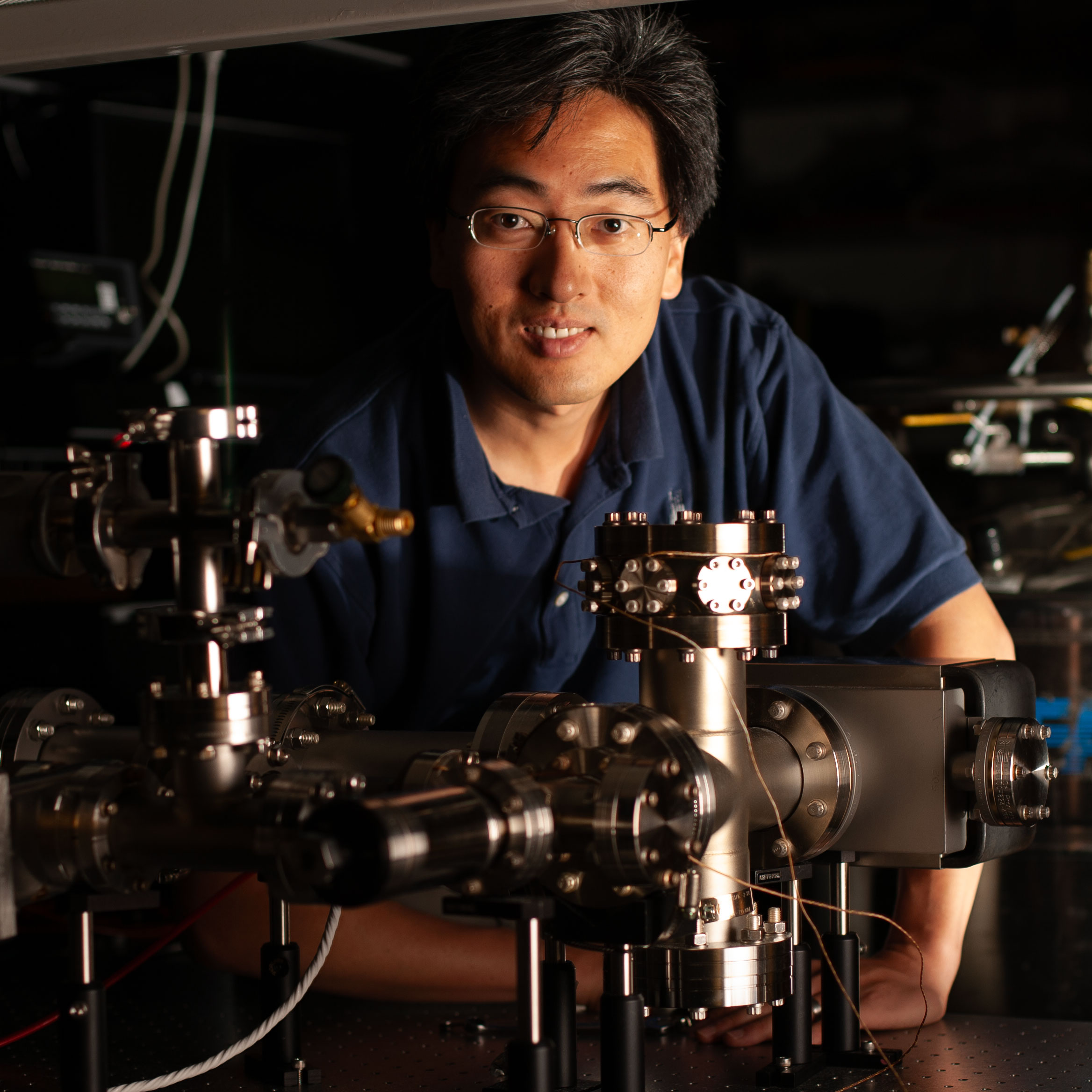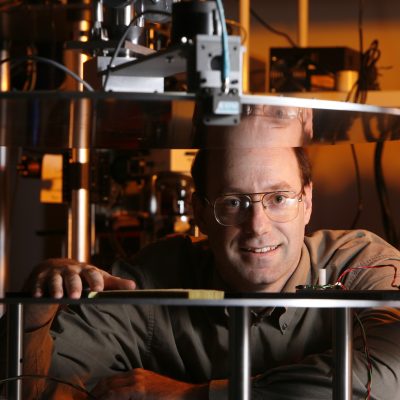Duke’s Jungsang Kim has likened the current state of his field – quantum computing – to that of a young Superman.
“When Superman first figured out that he had superpowers, … he didn’t know exactly how to use them for something useful. We are kind of in that stage,” Kim once said.
If you believe the promises, computers that harness the bizarre phenomena of quantum physics could speed up drug development, create better batteries, optimize supply chains, even crack “unbreakable” codes.
But 20 years ago, when Kim came to Duke, many experts doubted whether quantum computers would become useful within our lifetimes. Some said they would never outperform their classical counterparts.
But Kim, a professor of electrical and computer engineering and physics, was convinced they could deliver real-world value much sooner.
“I’ve always been very optimistic,” Kim said.
Since then, he and colleagues now gathered at the Duke Quantum Center have been working to transform quantum computing’s promise into practice.
What gives quantum computers their “superpowers” is how they encode and process information.
Traditional computers like those in our smartphones and laptops use bits that are either in a 0 or a 1 state. But quantum bits, or qubits, can exist in both states at once.
That means quantum computers could tackle complex problems that are beyond the reach of traditional computers. Just a few hundred qubits could process more possibilities than there are atoms in the universe.
Kim’s qubits consist of ions trapped inside a vacuum chamber, manipulated with lasers. He holds more than 80 patents and patent applications, and co-founded the company IonQ to bring their technology to market.
It’s not clear what the killer applications will be yet. But as quantum computers become more powerful and reliable, they’re also becoming more accessible, for users worldwide to try.
“That actually opens up a lot of imagination space,” Kim said.



